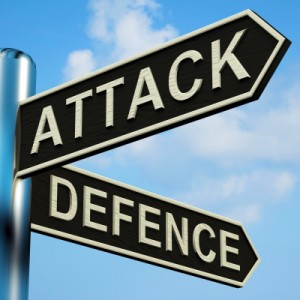One of my retirement living rules is to make sure I have fun every day. I limit my daily have-to-do’s schedule so that I’ll have a decently sized block of time (4 hours at least) left open for want-to-do activities. If the weather is good, my preferences are to go hiking, ride my bicycle, or take a country road drive surrounded by beautiful scenery. If I’m in the mood, I throw in a camera or a fishing rod and I am golden.
But what if the weather isn’t so nice? Outdoor activities are not an option for me if it’s raining or snowing, or if the ground is too wet, or if the ground or road is covered with snow. So what do I do then to have some fun?
In my case, I have 3 options: watch a DVD movie from the library or my collection, read one of my collected history books, or play one of my computer strategy war games. The movie watching will entertain me for a couple of hours. The reading can absorb me for a while longer. But the war gaming can so completely draw me in that I’ve been known to keep at it all night and still be playing when the sun comes up the next day.
What’s up with that, you may ask. What’s the big attraction? Well, playing a strategy war game commands my complete and intense concentration in an intricate, detailed, many-moving-parts planning process against an adversary (the game’s artificial intelligence) that is doing the same thing to stop and best me. Hah! That sounds like hard work, doesn’t it? But it’s very interesting and exciting to me — just my cup of tea.
I’m not talking about shoot-them-up games where you guide some individual character around the computer screen blasting away at anything that moves. I’m talking about grand-scope games where you guide and command whole armies and navies around vast operational theaters in concerted military campaigns that may take as long as a year of game days — or even a lot longer.
Think of being in supreme command of all the actual Allied ground, sea and air forces on December 6, 1941 (War in the Pacific) and going forward from there for the next year to try and stop the Japanese juggernaut. Or put yourself in command of that juggernaut.
Think of being in command of the actual Army of Northern Virginia on July 1, 1863 as it approaches the sleepy Pennsylvania town of Gettysburg and starts encountering signs of federal troop movements (Civil War Generals). Or think of being in command of the actual Roman legions at Cannae in 216 B.C. as you face Carthage’s infamous Hannibal and his forces (The Great Battles of Hannibal). Or let fantasy fly and think of being a 16-year-old newly ascended one-town Norwegian jarl in 800 A.D. as you embark on a years-long struggle to unite Norway into a single kingdom and then go on to unite Norway, Sweden and Denmark into a Scandinavian Empire (Vikings). To me, this is FUN STUFF!
Big picture war strategy — that also demands life-or-death attention to numerous tactical details. This is a big part of the mental challenge I find in playing these games.
If I’m ordering a carrier air strike against an enemy airfield, I have to decide how many fighter planes to send as escorts for the dive bombers and how many to hold back to fly combat air patrol over my taskforce. Get it wrong and my air assault could be repulsed or my carrier could be bombed and sunk in a counterattack.
If I am assembling a longship fleet to raid English towns and abbeys, I’ve got to decide how many of my Viking warriors to take with me, how many to arm as archers and how many as swordsmen, and how much food to load onboard to feed those warriors and crew (at least until we can resupply by reaching and plundering an abbey). Mess up and we’ll be crawling back home, possibly to find our own hometown has been attacked and sacked.
And on and on. Every scenario in every one of these games challenges my mind to consider a multiplicity of tactical variables, to solve many logistical problems, and to apply the best possible planning skills I can muster. Which can all, of course, completely blow up in my face due to the enemy’s own counterplans, the fog of war and the fortunes of combat.
In the end, in spite of all the planning, I don’t know how anything is going to turn out until it happens. And watching events unfold on the computer screen delivers one exciting jolt of adrenaline after another, with little spontaneous victory dances and slap-your-head bad-news reactions scattered all throughout. Like a big time football game. No. Much better than that.
# # #








I too love grand strategy games. Some are fairly easy to pick up, other are frustratingly dense; but in the end, being able to relive and bend history your way is what draws me to them.
Some ones to take a peek at if you haven’t already:
Europa Universalis IV
Total War (fairly sure this is what you were most referencing)
Crusader Kings II
Hearts of Iron III
Victoria II
Anno 1404
Civilization V
Hey, Pooperman!
I’ll check some of those out.
Love your web-surfing “handle”!